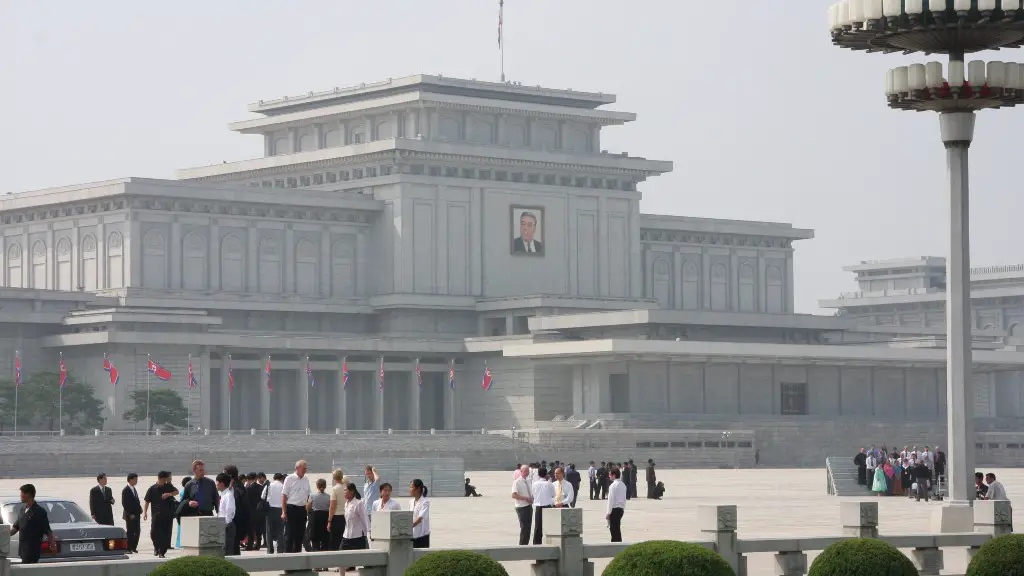North Korea has been testing its missiles as part of its efforts to become a nuclear power. This is a major issue of concern to many countries, including the United States. The history of North Korea’s nuclear program dates back to the 1960s, when the country began to acquire nuclear weapons and test missiles. The tests have continued over the past decades and have resulted in a series of international sanctions that have limited the country’s ability to develop their nuclear program. This article will discuss why North Korea is testing its missiles and the implications of these tests.
North Korea is testing its missiles for several reasons. The country is attempting to strengthen its position on the world stage and demonstrate its capabilities to other nations. It is also developing its military capabilities, in particular its nuclear and missile defense systems. The goal of these tests is to create a deterrent against any potential attack from outside forces, including the United States, South Korea, and other nations.
The international community has responded to North Korea’s missile tests with sanctions and condemnation. The United Nations has imposed a number of sanctions against the country which have significantly limited their ability to transfer technology, purchase material, and conduct research and development. The sanctions have also had a severe economic impact, resulting in severe shortages of food and medicine.
Many experts and analysts have raised the alarm that North Korea’s missile tests could provoke an escalation of international tensions and lead to a nuclear conflict. The tests have also caused regional tensions to increase, with both South Korea and Japan increasing their military presence and readiness. Some analysts have argued that the tests have set a dangerous precedent and could eventually lead to a nuclear war.
It is clear that North Korea’s missile tests are highly provocative and destabilizing. They are not in compliance with international law and do not contribute to regional stability or security. North Korea has also violated numerous international agreements and sanctions, indicating a disregard for international norms and agreements. The tests have been widely condemned and it is important for the international community to take action to prevent further tests and ensure that the country does not acquire nuclear weapons.
It is also important for the international community to consider diplomatic measures to address the crisis. This includes intensifying negotiations, applying more pressure on the North Korean government to adhere to the existing agreements and resolutions, and providing assistance and aid to North Korea to build up its economy and alleviate the impact of the sanctions.
Alternatives to military force
The most effective way to address the North Korean missile crisis is through diplomacy and constructive dialogue rather than military force. A military solution to this crisis would be counterproductive and lead to even greater instability in the region. Negotiations between North Korea and the United States have been ongoing for some time, but have been hampered by North Korea’s refusal to negotiate on its nuclear program and missile tests. It is therefore important for the international community to work together to create an environment which encourages cooperation between the two sides and helps to reduce tensions.
The United States has used a variety of diplomatic strategies to deal with North Korea in the past and could use a similar approach in the future. This could include providing incentives and disincentives, easing sanctions, and providing assistance and aid to the North Korean people. Such measures have the potential to engage North Korea in meaningful dialogue and help to reduce the security threats posed by its weapon systems.
There is also a role for other countries, particularly China, in helping to resolve the crisis. China has a history of close relations with North Korea and is an important economic partner for the country. China could potentially use its influence to persuade North Korea to stop their missile tests and renegotiate the terms of their nuclear program. Such an initiative could help to reduce the risk of a nuclear conflict or an escalation of tensions in the region.
The role of the international community
The international community has an important role to play in resolving the North Korean missile crisis. In particular, the United Nations Security Council must take stronger action to ensure that North Korea adheres to international sanctions and agrees to negotiations on its nuclear program. It is also important for the United States and the international community to continue to provide economic and humanitarian assistance to North Korea to help reduce the suffering of its people and create a more secure and peaceful environment.
The international community must also work together to strengthen regional security and create an environment which reduces the risk of a military conflict. This could involve regular dialogue and confidence building measures among all the relevant countries, as well as an integrated approach to addressing the nuclear and missile threats in the region.
At the same time, it is important to pursue a strategy of deterrence and containment if the North Korean government does not agree to negotiations and a peaceful resolution of the crisis. This could involve the United States bolstering its military presence in the region, enhancing defensive systems, and expanding missile defense capabilities. This could help to deter North Korea from engaging in any further provocations and potentially convince it to return to the negotiating table.
Engaging with North Korea
Engaging with North Korea is important in order to resolve the crisis and avoid a potential nuclear conflict. While the United States and other countries have engaged with North Korea in the past, such efforts have often been limited and have not yielded any concrete results. It is therefore important for the international community to work together to create a more constructive environment for dialogue and facilitate meaningful negotiations between the two sides.
The United States could play a leading role in this process, by engaging directly with North Korea and working to directly address their security concerns. It is also important for the United States to continue to provide diplomatic and financial support to other countries in the region, including South Korea and Japan, as they are key allies in the effort to prevent a conflict in the region.
North Korea must also be held accountable for its missile tests and violation of international agreements. The international community should impose tough sanctions and demands on the North Korean government if it does not comply with international agreements or take steps to denuclearize. Ultimately, the goal should be a peaceful resolution to the crisis, and the North Korean government must be held accountable to ensure that it does not continue its nuclear and missile programs.
Conclusion
North Korea’s missile tests pose a serious threat to international security and stability. In order to ensure a peaceful resolution to the crisis, it is essential that the international community take a unified approach and engage in meaningful negotiations with North Korea. All relevant countries must also take measures to reduce the risk of a military conflict in the region, while holding North Korea to account for its transgressions. Only then can a peaceful resolution to the crisis be achieved.




